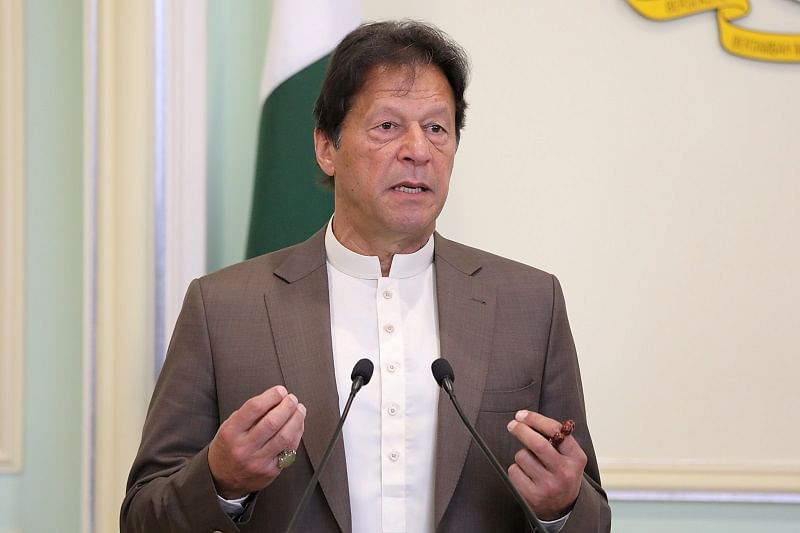
The United States is likely to throw its weight behind Pakistan at the forthcoming plenary of the Financial Action Task Force (FATF) in Paris and save it at least from being placed in the “black-list”, if not removed from the “grey-list”.
The Financial Action Task Force (FATF) is an intergovernmental organization coordinates global efforts to combat money laundering and terror financing. It will hold its plenary in Paris from February 16 to 21, when it is likely to review the progress made by Prime Minister Imran Khan's government in Islamabad in plugging the loopholes in its legislative and administrative mechanism to check the flow of funds to terrorist organizations.
Pakistan is lobbying hard with the United States and other western nations to ensure a favourable outcome of the FATF scrutiny. China, Turkey and Malaysia are also likely to support it at the plenary of the intergovernmental organization.
What caused unease in New Delhi is the possibility of the US helping out Pakistan at the FATF plenary. Alice Wells, acting US Assistant Secretary of State for South and Central Asian affairs, posted on Twitter early on Thursday that the conviction of the radical cleric Hafiz Saeed by a court was “an important step forward” by Pakistan – “both toward holding (the) LeT (Lashkar-e-Tayyiba) accountable for its crimes” and for meeting the “international commitments” of Khan Government in Islamabad to “combat terrorist financing”.
New Delhi, however, remained skeptical about Pakistan’s sincerity in squeezing the flow of funds to terrorist outfits and combating the menace of terror.
Wells had earlier visited Islamabad on January 21 to meet senior Pakistan Government officers and had lauded the initiatives Khan Government had made to tighten the legal and administrative mechanism to stop the flow of funds to terrorist organizations.
The US had in 2018 supported the move within the FATF to put Pakistan in the “grey list” – officially a list of “jurisdictions with strategic deficiencies in its legal regime to check money laundering and terrorist financing”.
Sources in New Delhi said that Trump Administration had changed its approach to Pakistan because it had to rely on Khan Government to clinch the peace-deal with the Taliban in Afghanistan.
The Government of Pakistan in June 2018 made a commitment to work with the FATF to plug the loopholes. But a review by the intergovernmental organisation in October 2019 revealed a “lack of progress” by Pakistan Government to address its terror financing risks.
The FATF noted that Pakistan had only largely addressed five of the 27 items on the action plan, with varying levels of progress made on the rest. The FATF had then set February 2020 as the deadline for Pakistan to tighten the legal framework to curb money-laundering and squeeze the flow of funds to the terrorist outfits. The organization warned if Khan Government had failed to plug the loopholes by then, it would take actions, which might include calling on financial institutions of other nations to be cautious while dealing with counterparts in Pakistan.
The FATF's “black-list” is in fact officially a list of the “jurisdictions with strategic AML/CFT (Anti-Money-Laundering and Counter-Terrorist Financing) deficiencies for which a call for action applies”. Only North Korea and Iran are currently on the FATF's “black-list”.
